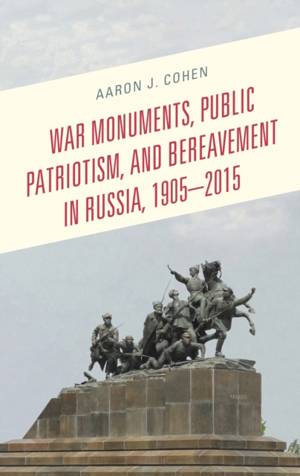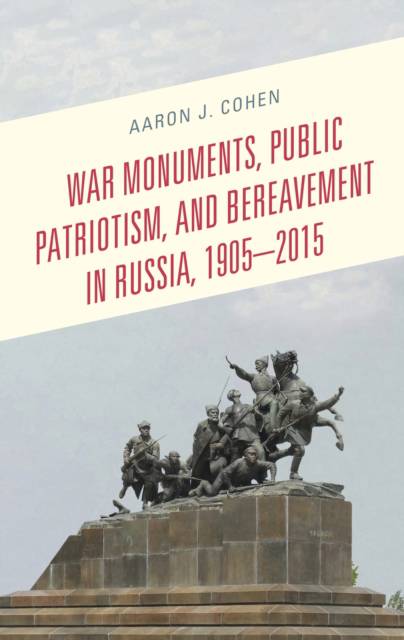
- Afhalen na 1 uur in een winkel met voorraad
- Gratis thuislevering in België vanaf € 30
- Ruim aanbod met 7 miljoen producten
- Afhalen na 1 uur in een winkel met voorraad
- Gratis thuislevering in België vanaf € 30
- Ruim aanbod met 7 miljoen producten
Zoeken
War Monuments, Public Patriotism, and Bereavement in Russia, 1905-2015
Aaron J Cohen
Hardcover | Engels
€ 187,95
+ 375 punten
Uitvoering
Omschrijving
This study is a broad cultural history of Russian war monuments in the twentieth century. It provides a unique analysis of the importance of war in Russian and Soviet cultural history and contributes to scholarship on the historical context of contemporary Russian politics and culture.
Specificaties
Betrokkenen
- Auteur(s):
- Uitgeverij:
Inhoud
- Aantal bladzijden:
- 270
- Taal:
- Engels
Eigenschappen
- Productcode (EAN):
- 9781498577472
- Verschijningsdatum:
- 23/06/2020
- Uitvoering:
- Hardcover
- Formaat:
- Genaaid
- Afmetingen:
- 152 mm x 229 mm
- Gewicht:
- 566 g

Alleen bij Standaard Boekhandel
+ 375 punten op je klantenkaart van Standaard Boekhandel
Beoordelingen
We publiceren alleen reviews die voldoen aan de voorwaarden voor reviews. Bekijk onze voorwaarden voor reviews.











